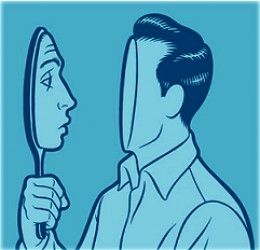Overthinker
“Overthinking: the art of creating new problems out of ones that never existed in the first place.” — Anonymous Harvard study found that this excessive brain activity(overthinking) depletes an essential protein – and that may actually shorten the human lifespan
We all want to make the most out of our decision and the fear of failure causes us to overthink.
You may worry that the decisions you make today might affect your future but rarely is there any certainty in life.
If you are constantly thinking about what may go wrong or right. You are leading your mind to constant misery and making it even harder to calm yourself down to focus and make logical choices.
Unable to decide
Many of us have experienced this when we are either afraid to make a mistake or trying to make it as perfect as possible. Doing endless research to identify the best approach to take and eventually we tend to get stuck.
Not being satisfied with the current decisions and even criticizing them when we finally make one.
You may even find more problems along the way, increasing your worries and looking for other ways to solve the issues. You carry on with this terrible cycle.
Eventually, we find ourselves back to square one but this time even more confused about how to actually go about these issues.
By repeating different thoughts in your mind, there is no forward movement and this causes inaction.
How it is harming us
Science has shown that thinking too much is harmful to our well-being and may lead to depression. What are some of the problems caused by overthinking?
- Anxiety
- Affect your skin
- Affect your digestive system
- Irregular sleep patterns
- Resentment
- High-stress levels
- High blood pressure
- Difficulty in understanding other perspectives
- Inability to make decisions
- Lowers problem-solving ability
- Damage your brain power
Mental problems
The following are some of the emotional and cognitive symptoms caused by stress mentioned in WebMD:
Emotional symptoms of stress include:
- Becoming easily agitated, frustrated, and moody
- Feeling overwhelmed, as if you are losing control or need to take control
- Having a hard time relaxing and quieting your mind
- Feeling bad about yourself (low self-esteem), and feeling lonely, worthless, and depressed
- Avoiding others
Cognitive symptoms of stress include:
- Constant worrying
- Racing thoughts
- Forgetfulness and disorganization
- Inability to focus
- Poor judgment
- Being pessimistic or seeing only the negative side
Worrying about the outcome does nothing but make you lose your hair(every strand of hair counts for me).
False reality
When you are stressed, you will begin to make up more negative outcomes. Unable to separate facts from what you know and start to believe more in the fear-based stories you tell yourself.
Physical health problems
Physical symptoms (WebMD) of stress include:
- Low energy
- Headaches
- Upset stomach, including diarrhea, constipation, and nausea
- Aches, pains, and tense muscles
- Insomnia
- Frequent colds and infections
- Loss of sexual desire and/or ability
Which can lead you down the path of more of these behavioral symptoms:
- Changes in appetite — either not eating or eating too much
- Procrastinating and avoiding responsibilities
- More use of alcohol, drugs, or cigarettes
- Having more nervous behaviors, such as nail biting, fidgeting, and pacing
Self Awareness

Being self-aware means you have a clear understanding of your personality, including your strengths and weaknesses, your thoughts and beliefs, your emotions, and your motivations.
Self-reflection is important if you want to look after yourselves more effectively. When you develop the ability to not only control your thought patterns but also look into situations from a new perspective. Only then can you find a method to solve problems.
When you can notice what triggers the negative thoughts that cause you to stress, you are able to reduce the time that is keeping you anxious.
The common signs to look out for if you lack self-awareness:
- Being defensive
- Being in denial (both in terms of situations that are going on around you and of your own feelings, thoughts, and stress levels)
- Feeling the need to micro-manage projects/people/situations – this provides a sense of control without having to address your own concerns
- Making excuses or blaming others
Millennial Generation
There are studies saying that nowadays, we experience the same amount of stimuli in a day that we did 100 years ago in our entire lives. For that reason, we can say that we are getting a little overstimulated by our current times. (Jasper de Taeye)
Especially if you’re a millennial, where you have experienced the fast growth of technology over the years starting from your childhood.
Being constantly flooded by newer technology, video games and the rise of social media can cause you to feel overwhelmed with all the information going around.
Although it does provide you with endless opportunities, where you can learn almost anything online but at the same time it’s a double-edged sword.
In fear of missing out on such opportunities, by looking at others’ life experiences and overthinking which strategies to follow. You are now unwilling to settle for anything less.

Take time to deliberate, but when the time for action has arrived, stop thinking and go in.
Fearing judgment

You stress about what others think of you. Either by overthinking the negative emotions you felt after an interaction or replaying every social situation in your mind that may happen.
If our mental health isn’t always healthy, we tend to judge ourselves and the relationship we have with everything.
Our thoughts will lead us to think, we’re too fat, unsuccessful, not good-looking, and worst of all “not good enough“.
When you feed the brain with these disturbing thoughts about yourself, it can translate into your social where you will act in ways that can destroy your relationships.
Since by overthinking your relationships you worry about the future and never really live in the moment. Having thoughts such as “what ifs” scenarios going through your mind will prevent you from connecting with others.
Everyone seems to have a clear idea of how other people should lead their lives, but none about his or her own. -Paulo Coelho




